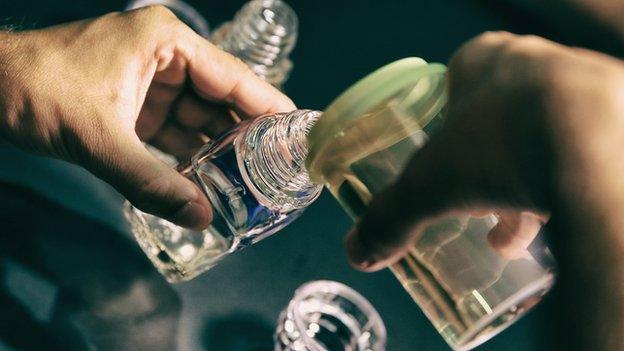Russian athletes ban is 'unfair', says Vladimir Putin
- Published
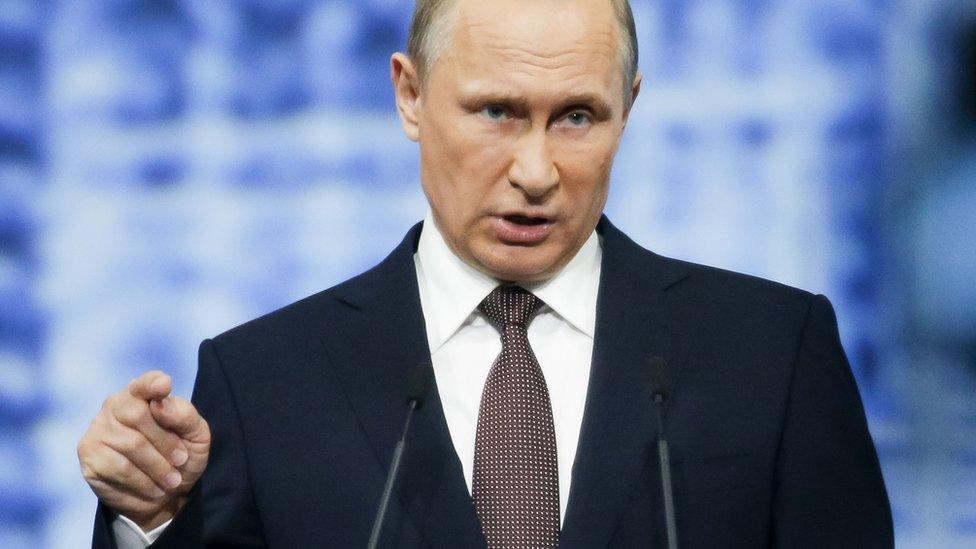
Mr Putin said innocent athletes should not be punished for the actions of others
Russia President Vladimir Putin has said it is unfair the Russian athletics team remains banned from international contests, including the Rio Olympics.
The International Association of Athletics Federation (IAAF) decided not to lift the suspension, imposed after accusations of state-sponsored doping.
Individual athletes may compete as neutrals if they prove they are clean.
Mr Putin called on the International Olympic Committee (IOC), to intervene.
Doping, violence: What's gone wrong with Russian sport?
The IOC executive board said it would hold a telephone conference on Saturday to discuss the issue ahead of a full IOC summit in Lausanne on Tuesday.
"There are universally recognised principles of law and one of them is that the responsibility should be always personified," said President Putin.
"The people who have nothing to do with violations, why should they suffer for those who committed the violations?"
The country was suspended by the IAAF in November 2015, after an independent World Anti-Doping Association (Wada) report depicted a culture of widespread doping, with even the secret services involved.
After that, Russia introduced reforms including an overhaul of the rules, the introduction of independent testing, and anti-doping lessons in schools.
A task force has been studying those reforms but a fresh Wada report, issued on Wednesday, made more damaging claims.
Although significant progress has been made to meet the IAAF's criteria, it said, work still remains. In particular:
The deep-seated culture of tolerance for doping appears not to have changed. The head coach of the athletics team and athletes appear unwilling to acknowledge the extent of the doping problem.
A strong and effective anti-doping infrastructure capable of detecting and deterring doping has still not been created.
There are detailed allegations that the Ministry of Sport has orchestrated systematic doping and cover-ups.
Wada said officials in Russia were being stopped from testing athletes and threatened by security services.
Rune Andersen of the IAAF said Russian athletics had been "tainted by doping from the top level down."
"The systematic doping that has been ongoing in Russia - it's difficult to pick the clean athletes," he said.
IAAF's Rune Andersen: "A hundred negative tests does not mean that an athlete is clean"
IOC vice-president John Coates said Russia's athletes should remain banned and not be allowed to take part in the Rio Games this summer.
He also said Russia's anti-doping agency and athletics body were "rotten to the core".
Meanwhile, Russian pole vaulter Yelena Isinbayeva said she would challenge the IAAF's decision in court, saying she was "disappointed and angry".
"We are blamed for something we have not done," she said. "I will not remain silent, I will take measures. I will appeal to the human rights court."
In a statement, Russia's Ministry of Sport said it was "extremely disappointed" by the IAAF decision.
IAAF president Lord Coe said "no politics" were involved in the decision over Russia's ban. He emphasised the unanimous nature of the verdict and the international range of council members.
On Saturday, Russia said it was investigating its former top anti-doping official, who raised the alert before fleeing to the US.
A criminal investigation has been opened into whether Grigory Rodchenkov abused his authority.
Mr Rodchenkov alleged that the Sochi winter Olympics were the apex of a decade-long effort to perfect Russia's doping strategy.
- Published17 June 2016
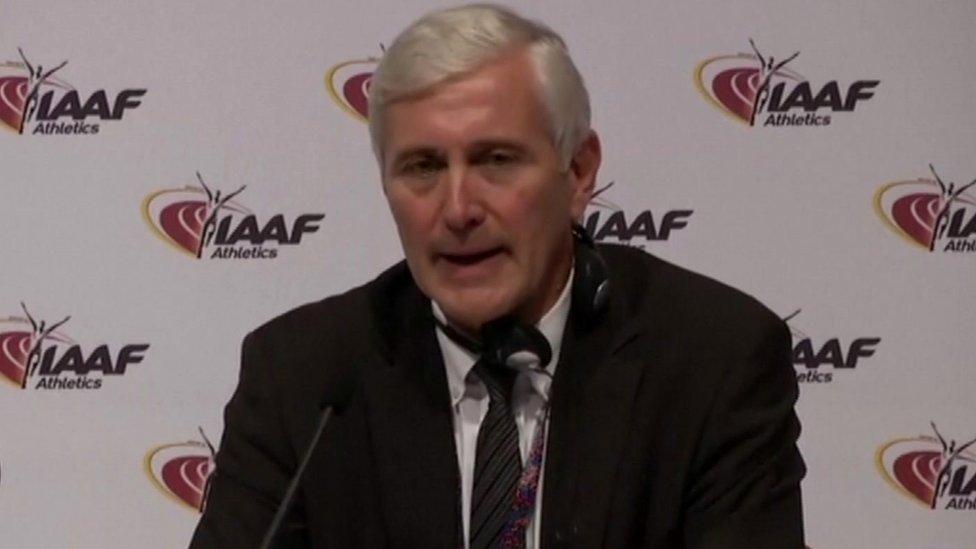
- Attribution
- Published12 November 2015
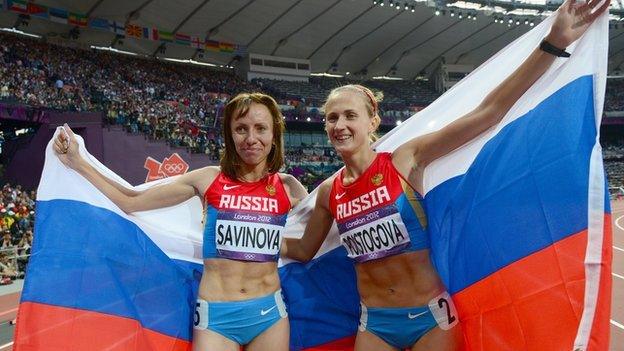
- Attribution
- Published17 June 2016
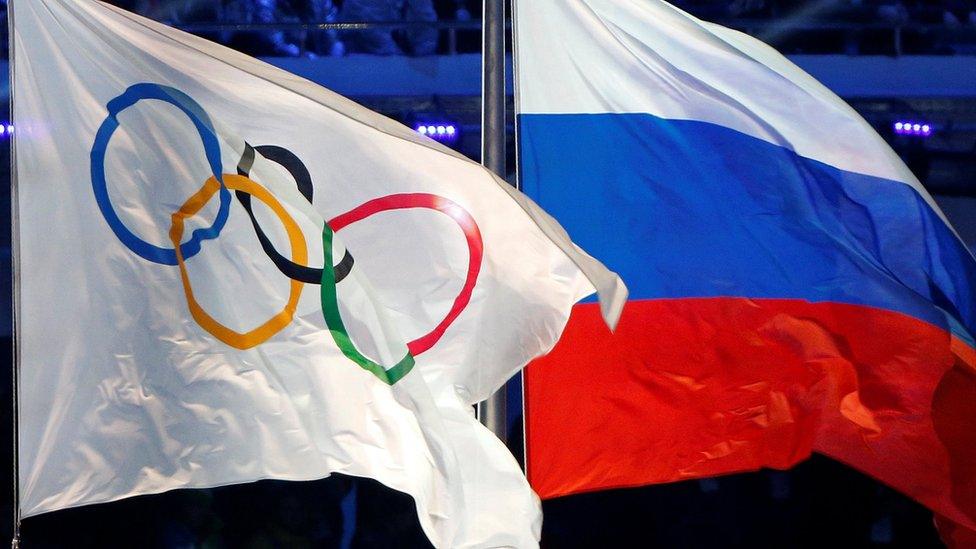
- Attribution
- Published15 May 2016
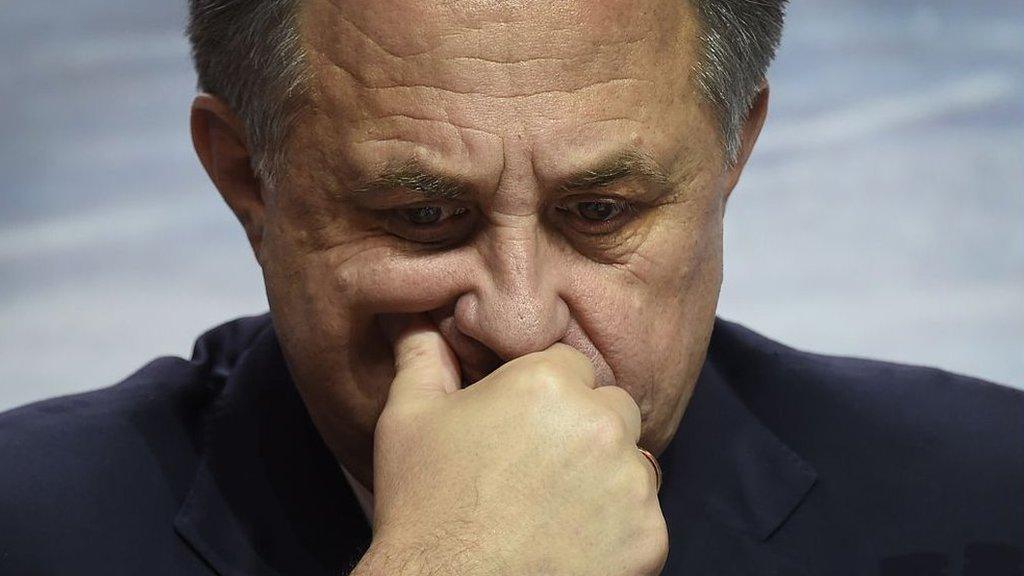
- Attribution
- Published4 December 2014
